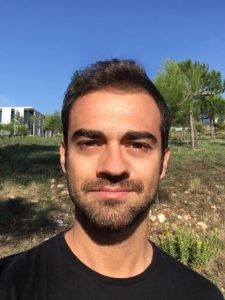T4 Title: Tutorial on Tools and Techniques for URLLC Towards Beyond-5G Systems
Organizer: Nurul Huda Mahmood
Organizer: Italo Atzeni
Abstract: With the increasing digitalization of our society, many machines need to be connected to the network and operate autonomously without human intervention. Machine-type communications applications can have rather diverse requirements, ranging from stringent quality of service (QoS) demands (in terms of reliability and latency) to massive connectivity. 5G networks are inherently designed to support machine-type communications with two novel dedicated service classes. On the one hand, ultra-reliable low-latency communications (URLLC) target highly reliable data transmissions with very low latencies, which are mainly geared towards mission-critical applications such as vehicle-to-everything (V2X) communications. On the other hand, massive machine-type communications (mMTC) are designed to serve a large number of devices with sporadic traffic.
This tutorial will provide a holistic overview of URLLC, including the implementation and research challenges, the enablers, and the expected evolution towards beyond-5G and 6G wireless systems. After providing a basic introduction of URLLC, we will present the implementation and the research aspects, including the main key performance indicators (KPIs), the fundamental throughput-reliability-latency tradeoff, and the primary challenges. Then, we will discuss the main URLLC enablers, ranging from the system design enhancements introduced by the 5G New Radio (NR) standard to novel solutions driven by communication theory, machine learning, and artificial intelligence. Subsequently, we will detail the most important URLLC solutions enabled by multi-antenna technologies, such as massive MIMO, coordinated multi-point (CoMP), and millimeter wave (mmWave) communications. Finally, we will discuss the expected evolution of URLLC, with special focus on the potential 6G applications and technologies.
Bio: Dr. Nurul Huda Mahmood was born in Bangladesh. He received the PhD degree in Communications Theory from the Norwegian University of Science and Technology (NTNU), Norway in 2013. In 2012–2018, he was with the Wireless Communications Networks (WCN) section at Aalborg University (AAU), Denmark, involved in teaching and research activities. At AAU, he last held the position of Associate Professor. He also served as an external research contractor with Nokia Bell Labs, Aalborg. Currently, he is a Senior Research Fellow at the Centre for Wireless Communications (CWC), University of Oulu, Finland, where he is part of the Machine-Type Wireless Communications research group and is involved in the 6G Flagship (https://www.oulu.fi/6gflagship/) program. He has authored/co-authored around 70 peer-reviewed publications, including about 20 papers on topics directly related to the contents of this tutorial. He is a co-recipient of the Best Student Paper Award at IEEE VTC Spring 2019. His research interests include resource optimization techniques with focus on URLLC and mMTC, as well as modeling and performance analysis of wireless communication systems.
 Bio: Dr. Italo Atzeni received the MSc degree (Hons.) in telecommunications engineering from the University of Cagliari, Italy, in 2010, and the PhD degree (Hons.) in signal theory and communications from the Polytechnic University of Catalonia–BarcelonaTech, Spain, in 2014. Since 2019, he is with the Centre for Wireless Communications, University of Oulu, Finland, where he is a Senior Research Fellow and Adjunct Professor. From 2014 to 2017, he was a Researcher with the Mathematical and Algorithmic Sciences Laboratory, Paris Research Center, Huawei Technologies, France. From 2017 to 2018, he was a Research Associate with the Communication Systems Department, EURECOM, France. He has previously held a research appointment at The Hong Kong University of Science and Technology, Hong Kong, in 2013. His primary research interests are in communication and information theory, statistical signal processing, convex and distributed optimization theory, and their applications to decentralized decision making in heterogeneous wireless communication networks. He received the Best Paper Award in the Wireless Communications Symposium at IEEE ICC 2019. He was granted the MSCA-IF grant for the project “Device-Centric Low-Complexity High-Frequency Networks” (DELIGHT) in 2020.
Bio: Dr. Italo Atzeni received the MSc degree (Hons.) in telecommunications engineering from the University of Cagliari, Italy, in 2010, and the PhD degree (Hons.) in signal theory and communications from the Polytechnic University of Catalonia–BarcelonaTech, Spain, in 2014. Since 2019, he is with the Centre for Wireless Communications, University of Oulu, Finland, where he is a Senior Research Fellow and Adjunct Professor. From 2014 to 2017, he was a Researcher with the Mathematical and Algorithmic Sciences Laboratory, Paris Research Center, Huawei Technologies, France. From 2017 to 2018, he was a Research Associate with the Communication Systems Department, EURECOM, France. He has previously held a research appointment at The Hong Kong University of Science and Technology, Hong Kong, in 2013. His primary research interests are in communication and information theory, statistical signal processing, convex and distributed optimization theory, and their applications to decentralized decision making in heterogeneous wireless communication networks. He received the Best Paper Award in the Wireless Communications Symposium at IEEE ICC 2019. He was granted the MSCA-IF grant for the project “Device-Centric Low-Complexity High-Frequency Networks” (DELIGHT) in 2020.
